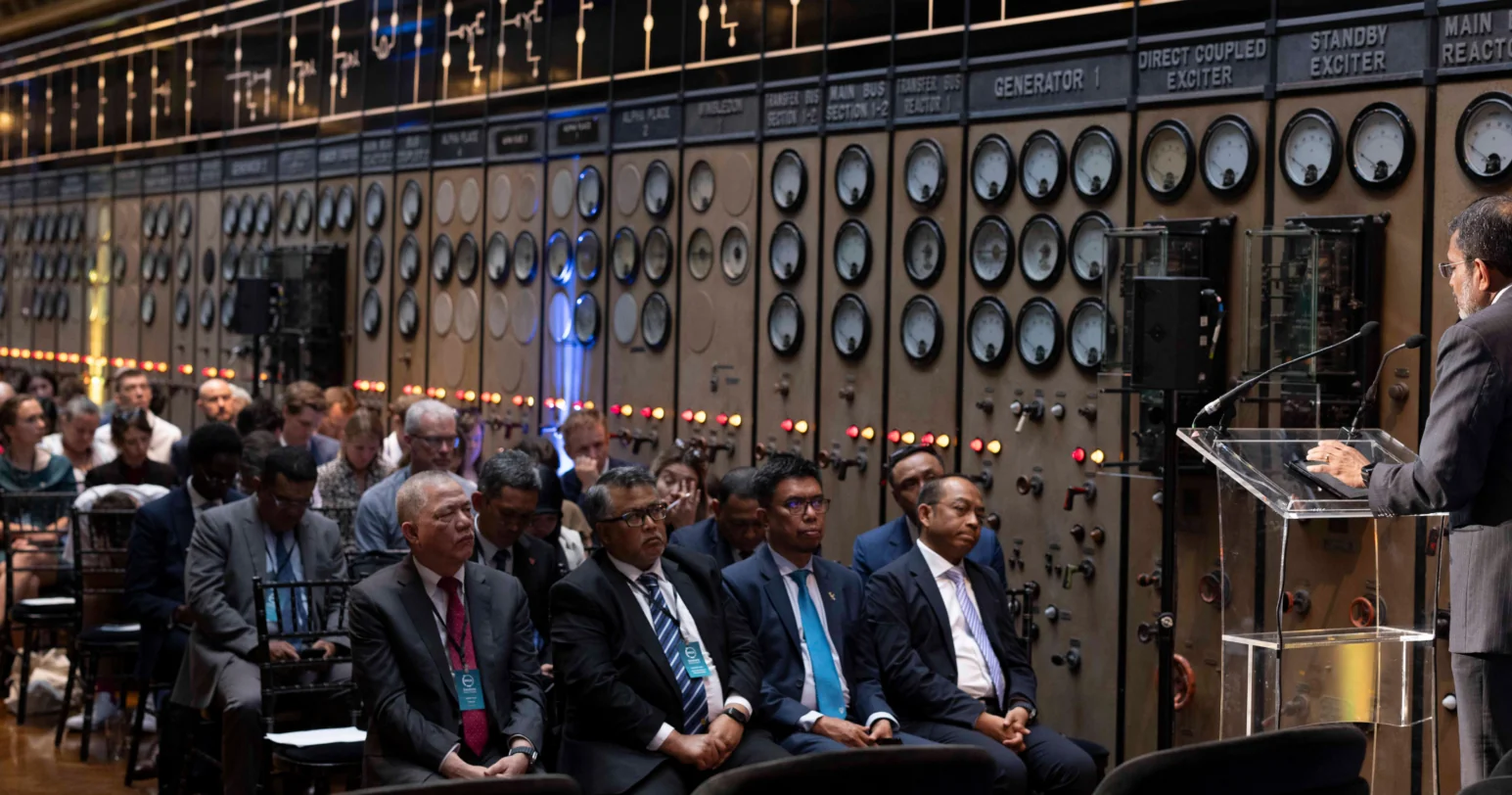
Key Takeaways
- Success stories of just transitions in Europe and America demonstrate that phasing out coal can be an opportunity to boost economic development and create quality jobs in coal-dependent regions.
- To be ‘just’ and deliver positive results, the transition needs to be planned well in advance and continuously monitored, with effective social dialogue and stakeholder engagement from local communities and vulnerable groups.
- Emerging economies face a markedly different set of challenges. To overcome them, they need more technical and financial support.
- At the PPCA Solutions Dialogues, PPCA members and partners will share their experience and expertise on how they organise a just transition, including in emerging economies.
The energy transition is rapidly accelerating. It is bringing cleaner air, cheaper electricity and more secure economies and energy systems. However, this positive trend means that, for coal-dependent regions, the transition is increasingly challenging as they have even less time to find new sources of income for the affected workers and communities.
PPCA members’ experience shows that the transition does not need to be a threat. To the contrary, it can be an opportunity to create new, better jobs and deliver economic growth in a way that is inclusive and just. Success stories from on-going just transitions in Europe and North America demonstrate it is possible, but emerging economies face a markedly different set of challenges, especially coal-dependent countries. These countries require more technical and financial support to make sure the energy transition is as fair and inclusive as possible to everyone concerned – workers , enterprises and communities – by creating decent work opportunities and leaving no one behind.
PPCA members are leading the way
PPCA members have a wealth of experience in planning and implementing just transitions. Their experiences show that a just transition is not only about replacing one type of employment or energy with another, but is also about reorganising local economies so that they can harness and capitalise on the rise in clean energy to deliver tangible benefits for the local economy.
In Chile, coal power has been an important part of the energy mix. In recent years, however, Chile has become a leader in accelerating the phase out of coal. The country developed a ‘Just Energy Transition Strategy’ to address the challenges created by retirement of coal power for the 13,000 workers and communities. Crafted with broad participation of unions, citizens, industry, and international organisations – a key sign of a strong just transition process – companies champion the conversion of power plants and local action plans align the energy transition with local realities. In the coal-dependent region of Tocopilla, coal plant owner, Engie, established a Just Transition Plan for employees as it closed it final coal unit in 2022 in advance of building 151 MW of wind power with support of a blended finance mechanism. Coal plants workers were involved in retraining in local industries, early retirement, voluntary resignation, and creation of a permanent working group with local communities.
In Upper Nitra, Slovakia, a just transition is also underway, with the country having phased out coal power in 2023. Government and grassroots campaigns sought to protect the economically vulnerable region of Upper Nitra where 11,000 people were employed by the coal industry. Early planning and robust stakeholder engagement processes mean new opportunities for workers and communities are already being realised today. New energy sources such as heat pumps, solar panels, and batteries are coming online through the re-use of coal power plant infrastructure. New sectors and jobs exist, including railway carriage repair and production, agriculture and aquaculture, as well as burgeoning tourism and recreation activities including Open-Air Mining Museum celebrating its mining history. Upper Nitra’s positive trajectory will only grow with the support and implementation of the EU Just Transition Mechanism and Fund, which has played a huge role in financing just transitions across the European Union.

Social dialogue, long term planning and skills training key to unlocking benefits
Just transition programmes should focus on achieving greater employment, supporting the wider economic development and reducing poverty and inequality. To do so, planning must start early, involve all affected stakeholders, and identify any local advantages to unlock solutions and maximise benefits.
Early analysis of potential future economic opportunities in the region will help mitigate negative economic impacts in coal-dependent areas and contribute to building a positive economic foundation. For example, the Climate Investment Fund’s Accelerating Coal Transition program in Indonesia, in collaboration with the World Bank, is working to identify parts of coal regions that can make the most of just transition pilot projects. These projects aim to strengthen local capacity for economic development through investments in three areas: local development planning and infrastructure; skills and entrepreneurship schemes; and early dialogue with local communities.
A just transition from coal to clean means putting in place social protections whilst addressing labour markets and skills gaps as new, cleaner industries are established. In Victoria, Australia local authorities support workers, contractors and their families with career navigation, training and health and wellbeing. They connect people to local services which provide skills development, training and information, so that people can take up new employment opportunities. Another good example is the Australian state of Queensland, where coal power plant workers are being supported through a Job Security Guarantee. This guarantee is backed by a $150 million fund which will help protect these workers with the commitment to no job losses through the transition.
A just transition is more difficult for some than others
The just transition challenge in emerging markets is far greater. These economies typically have fast-growing populations and energy needs, young coal power plants, and limited government budgets. To ensure a global coal phase-out by 2040, as required by climate science, greater international cooperation, transfer of knowledge and technical expertise sharing is needed. Crucially, more financial assistance for emerging economies needs to be provided to ensure they can confidently set coal phase-out dates and develop just transition plans without taking on excessive financial risk.
At the PPCA’s High Level Dialogue in London, Indonesia’s Deputy Minister Rachmat Kaimuddin reminded delegates that millions of people in Indonesia rely on the coal industry and are at risk of losing their jobs and income in the transition. He also cautioned that authorities should be wary of promising coal workers the same number of jobs in the clean energy sector. Instead, they should emphasise that the transition will create economy-wide opportunities and benefits, which the government will support workers in accessing.
The PPCA works with governments and organisations building the technical and financial support systems for coal dependent regions in emerging markets as they transition from coal to clean. Examples include multilateral platforms such as the International Labour Organisation, the Southeast Asia Energy Transition Partnership, the Just Energy Transition in Coal Regions Initiative (JET-CR), CIF ACT and UNFCCC Just Transition Work Programme. On top of this, country platforms like in North Macedonia and the Just Energy Transition Partnerships (JETPs) in Indonesia, Viet Nam and South Africa work at different levels and regions. These initiatives are developing practical solutions to address the needs of affected people during the phase-out of coal power.
The world is waking up to the fact that business-as-usual activities cannot deliver a fair and just transition for coal workers and communities and that targeted, local solutions are needed to deliver a managed phase-out from coal. The PPCA and our partners will be demonstrating successes, sharing lessons learnt and showcasing the leaders pioneering just transition programs in their countries during the Solutions Dialogues series – join us, watch online, and find out more.




